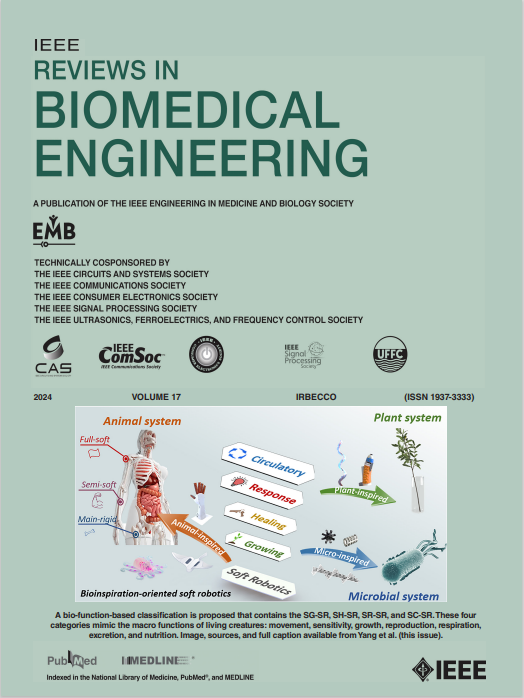Utilizing Neurons to Interrogate Cancer: Integrative Analysis of Cancer Omics Data With Deep Learning Models
IF 17.2
1区 工程技术
Q1 ENGINEERING, BIOMEDICAL
引用次数: 0
Abstract
Genomics plays an essential role in the early detection, classification, and targeted cancer therapy based on the analysis of precise alterations at the molecular level. Using the most reliable approach is essential for the exact interrogation and cross-examination of complex and multi-high-dimensional “Multi-omics” cancer genomics data. In recent years, deep learning has been successfully utilized to deal with large cancer genomics data and has the potential to transform predictive biology. This review aims to explore the recent advancements in the application of deep learning models in basic cancer omics research, including different methodologies for the interrogation of bulk cancer omics data and the importance of cross-platform data integration. The paper provides insights into advantages, limitations, potential for improvement, research gaps, future direction, and an in-depth comparison of the models currently used in the field of cancer genomics, highlighting the crucial need for collaboration and interdisciplinary research in the field.求助全文
约1分钟内获得全文
求助全文
来源期刊

IEEE Reviews in Biomedical Engineering
Engineering-Biomedical Engineering
CiteScore
31.70
自引率
0.60%
发文量
93
期刊介绍:
IEEE Reviews in Biomedical Engineering (RBME) serves as a platform to review the state-of-the-art and trends in the interdisciplinary field of biomedical engineering, which encompasses engineering, life sciences, and medicine. The journal aims to consolidate research and reviews for members of all IEEE societies interested in biomedical engineering. Recognizing the demand for comprehensive reviews among authors of various IEEE journals, RBME addresses this need by receiving, reviewing, and publishing scholarly works under one umbrella. It covers a broad spectrum, from historical to modern developments in biomedical engineering and the integration of technologies from various IEEE societies into the life sciences and medicine.
 求助内容:
求助内容: 应助结果提醒方式:
应助结果提醒方式:


